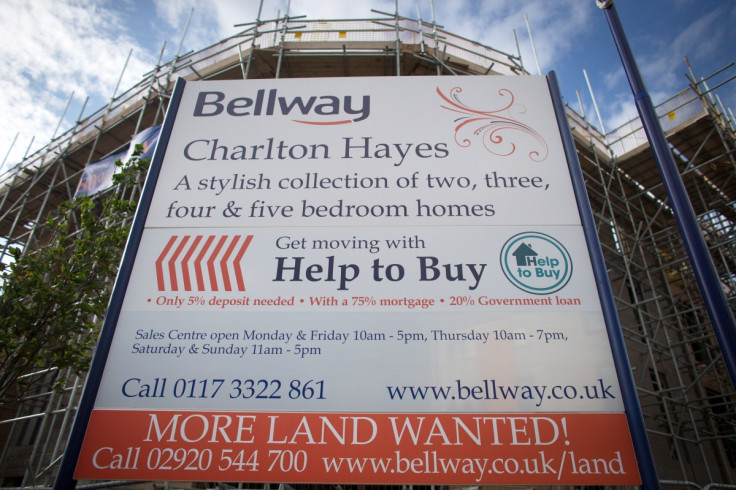First-time house buyers: A handy guide to what a property purchase costs

So you're a first-time buyer. You've got yourself a deposit – perhaps through years of graft and saving, perhaps from a generous relative – and now you're hunting for a house.
The ONS says the average house price paid by first-time buyers is £221,000, as of November 2015. But it's not as simple as getting a deposit, borrowing the money and buying your first home. There are lots of hidden costs and fees that make buying a property more expensive than many first realise. The costs will obviously vary depending on who you choose to provide certain services, or how much stamp duty you pay relative to the value of the property. But, using the average first-time buyer property price, here is an indicative guide to what it all could cost you.
First, the deposit: £11,050
There are 95% mortgages available through the government's Help to Buy scheme if you're a first-time buyer, so you only need a 5% deposit. It's also worth noting that, in general, the most banks will lend you is 4.5 times your annual household income. The Help to Buy ISA is also worth considering if you're saving for a deposit. The government will top up your savings by 25% up to a maximum of £3,000 (which you would have to save £12,000 in total to receive). If you're not doing Help to Buy or a shared ownership scheme, you'll probably need a 10% deposit at least.
You'll need a mortgage broker: £500
Brokers are pretty much essential. They have the market expertise to find you the best mortgage deals out there which are available and affordable to you based on your financial circumstances. But you should choose your broker carefully. Make sure your broker searches the whole of the mortgage market. Some will only look at lenders they have deals with. Others will not consider mortgage products banks already offer directly to the public because they won't make commission. Get confirmation from your broker that they cover the entire market. There are plenty of free brokers around who make their money in commission from the lender. But some do charge, especially the ones who cover the whole of the mortgage market. The choice is yours, but the average broker fee is around £500 if you're willing to pay.
And a solicitor or conveyancer: £750
Legal eagles are expensive, but there's no escaping them when buying a home because of all the legal work involved, such as checking the lease and arranging the title deeds. Costs vary, but the average you can expect to shell out on legal work is around £750.
You'll have to pay for a valuation: £500
The lender will conduct a valuation survey of the property to make sure they agree it's worth what you're paying for it before they risk handing over the money. Sometimes they will do this free of charge, but there is a chance you'll get the bill. Unless you're buying a newbuild property, it's probably worth getting a comprehensive building survey done yourself because you don't want to buy a house and then discover any hidden nasties that could cost you a fortune. So you may end up paying for two surveys.
Your lender will charge you for all sorts: a very rough £1,000
There are loads of administrative extras lenders like to put on top of the mortgage, which can add up. Things like arrangement fees, booking fees, telegraphic transfer fees for wiring the money to your solicitor, and other bits and bobs. It varies from lender to lender, and sometimes they will add the costs to the mortgage itself (though that means you will pay interest on the amount), but often you will have to pay upfront.
Ensure you insure your property: £150
Buildings insurance is an absolute must because lenders won't give you a mortgage unless the property, against which their lending is secured, is protected. You can get combined buildings and contents insurance for around £150 a year.
You'll have to stump up stamp duty: £1,920
Just when you thought you had saved enough money to buy a home... The taxman always has to have his pound of flesh. Don't forget about stamp duty, because it won't forget about you. How much you pay depends on the value of the property you're buying. There are loads of stamp duty calculators online which will tell you how much you'll owe. For this article, we assume £221,000, the first-time buyer's average price, which means stamp duty owed of £1,920.
So that leaves a purely illustrative total of...
...around £15,870... Of course that will vary greatly depending on your circumstances, but this is supposed to show how it all adds up if you're a first-time buyer and the sort of things you need to be thinking about – and saving for – when you are trying to get onto the property ladder.
Oh, and don't forget all the little extras on top...
You can buy a house without necessarily saving for these, but they are things you should keep in mind if you're putting money away: removal van hire, connecting energy services, internet and phone connection, council tax, a service charge, and a parking permit, all spring to mind...
© Copyright IBTimes 2025. All rights reserved.






















